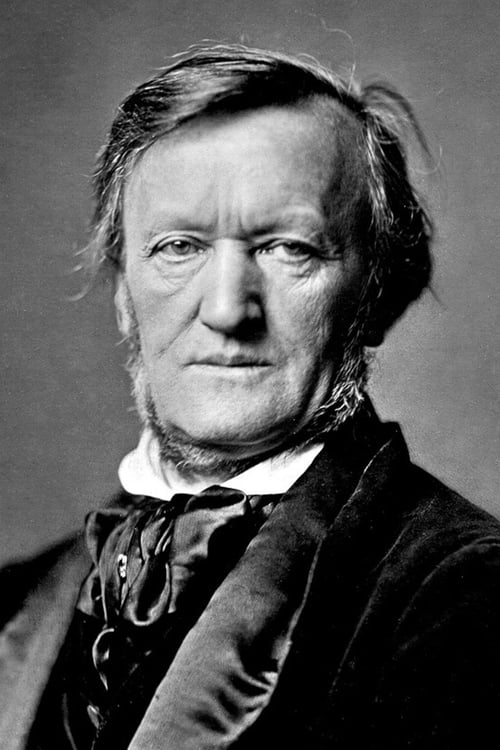Der Fliegende Holländer (1975)
Género : Música, Drama, Fantasía
Tiempo de ejecución : 0M
Director : Václav Kašlík
Sinopsis
This vivid film of Wagner's romatic opera succeeds in conveying what has famously been called "the wind that blows out at you whenever you open the score", including Daland's boat anchoring against the Sandwike cliffs, the red-sailed phantom ship, and the ghost crew rising from the dead. "Scenes that recall classic horror films... Brilliantly successful" (Nürnberger Nachrichten), "Captures the works' essence" (Süddeutsche Zeitung). With a superb cast; conducted by Wagner authority Wolfgang Sawallisch.
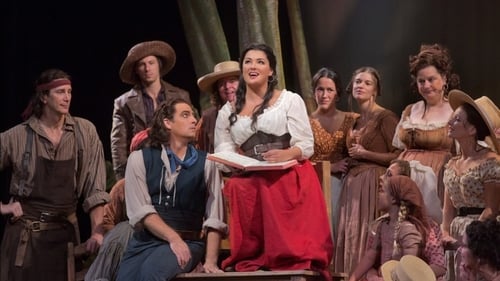
Anna Netrebko as the beautiful and wealthy Adina leads the cast in Barlett Sher’s production of Donizetti’s charming comedy, first seen on Opening Night of the Met’s 2012–13 season. Matthew Polenzani is Nemorino, the poor but good-hearted country boy who wins her love—with the help of the magic “elixir” sold by the quack Dulcamara, played by Ambrogio Maestri. Mariusz Kwiecien is the swaggering Sergeant Belcore and Maurizio Benini conducts.
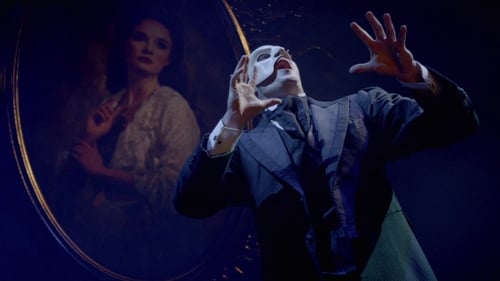
La excelencia compositiva de Andrew Lloyd Weber vuelve a deleitarnos con una nueva obra musical considerada la secuela de la célebre 'El fantasma de la ópera'. La hermosa y talentosa Christine Daaé y el misterioso enmascarado, se reencuentran.
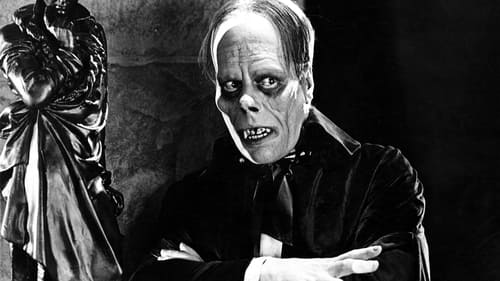
En los sótanos de la Ópera de París vive oculto el misterioso Eric, el hombre de voz de ángel y rostro desfigurado de demonio, que acecha entre pared y pared a la hermosa soprano Christine Daeé, a la que desea catapultar hasta la cima de la fama; pero cuando se entera de que la cantante está prometida al apuesto vizconde Raoul, se vuelve loco de celos.
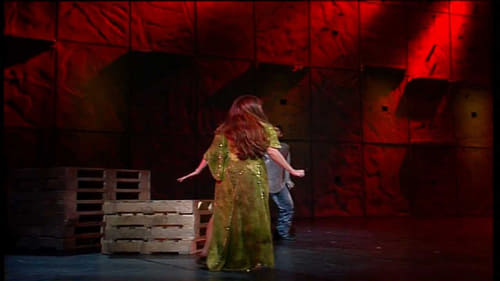
Adaptación musical de la novela de Victor Hugo "Notre Dame de París", que sigue a la bailarina gitana Esmeralda y a los tres hombres que compiten por su amor.

In the depths of the Rhine, the three Rhinemaidens guard the Rhinegold, a treasure of immeasurable value. The Nibelung dwarf Alberich is dazzled by the sight of it. The girls explain that whoever wins the gold and forges it into a ring will gain power over the world, but must first renounce love. Frustrated by his unsuccessful attempts to catch one of the girls, Alberich curses love and steals the gold. Wotan, lord of the gods, is reproached by his wife Fricka: he has promised to give Freia, goddess of youth, to the giants Fasolt and Fafner in return for their building a fortress for the gods. When the giants demand their reward, Loge, the god of fire, suggests an alternative payment: the ring Alberich has forged from the Rhinegold, and his other treasures. The giants agree, and Wotan and Loge leave for the Nibelungs’ underground home.
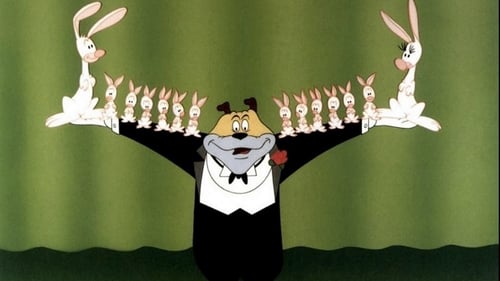
After he is rejected by the Great Poochini as an opening act, Mysto the Magician gets his revenge by conducting his next operatic performance.

Mary quiere convertirse en cantante de ópera y empieza a recibir clases del maestro Guilio Monteverdi. Poco a poco ambos se irán enamorando. (FILMAFFINITY)
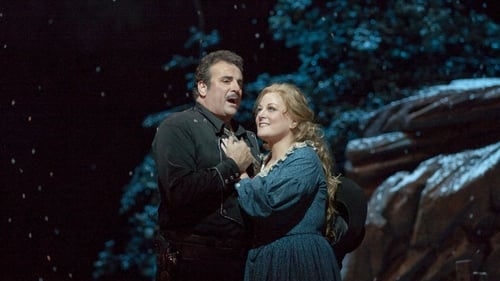
This excellent Deutsche Grammophon Blu-ray DVD was made during a Metropolitan Opera company performance of “La Fanciulla del West” in December 2010. The performance marked the centenary of the world premiere of the opera at the old Metropolitan Opera in 1910 with Caruso as Ramirrez or Dick Johnson, Emmy Destinn as Minnie, Pasquale Amato as Jack Rance and Arturo Toscanini as the conductor. Puccini helped in the production of the opera and was present in the audience on the night of the premiere.

Sir David McVicar’s bold new staging of Tosca, Puccini’s operatic thriller of Napoleonic Rome, thrilled Met audiences when it rang in the New Year in 2018. Only weeks later, the production was seen by opera lovers worldwide as part of the Met’s Live in HD series of cinema presentations. In this performance, Bulgarian soprano Sonya Yoncheva is the passionate title diva, opposite charismatic tenor Vittorio Grigolo as her lover, the idealistic painter Mario Cavaradossi. Baritone Željko Lučić is the menacing Baron Scarpia, the evil chief of police who employs brutal tactics to ensnare both criminals and sexual conquests. On the podium, Emmanuel Villaume conducts the electrifying score, which features some of Puccini’s most memorable melodies.

Cio-Cio-San, the young Japanese bride of dashing American officer Lieutenant Pinkerton, finds her romantic idyll shattered when he deserts her shortly after their marriage. She lives in hope that one day he will return. Three years later, Cio-Cio-San and her little son see Pinkerton’s ship in the harbour. She excitedly expects his visit – but Pinkerton and his American wife Kate have come only to take the boy away, to raise him in America. Cio-Cio-San bids her son farewell and then takes her own life.
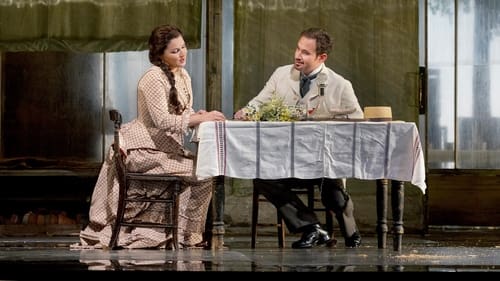
The imperious Onegin rejects naive Tatiana's proposal of love and also incites a duel with his best friend turned rival Lenski (Piotr Beczala). This sets the scene for a dramatic story of love, loyalty and betrayal. Acclaimed theatre director Deborah Warner presents this lavish new interpretation of the timeless tale. Set in the 19th century and moving episodically from farmhouse to ballroom, the production culminates in an unforgettable finale set during a snowstorm.

The Met assembled an ideal cast for François Girard’s acclaimed new production of Wagner’s final masterpiece: Jonas Kaufmann in the title role of the fool “made wise by compassion”, René Pape as Gurnemanz, the veteran Knight of the Grail, Katarina Dalayman as Kundry, Peter Mattei is Amfortas, the anguished ruler of the Grail’s kingdom, and Evgeny Nikitin sings the evil magician Klingsor.
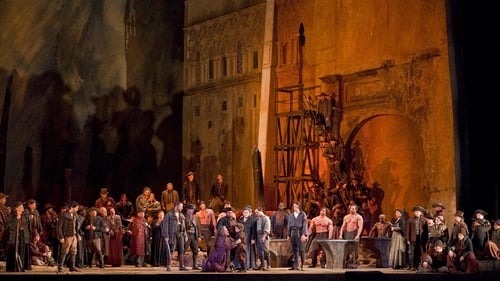
Verdi’s IL TROVATORE again storms the Met stage in a star-studded, anvil-wielding cast , including Sondra Radvanovsky, Dolora Zajick and Dmitri Hvorostovsky. Marcelo Álvarez sings Manrico, the troubadour of the title. The story is well-known already: The gypsy Azucena has harbored a grudge for thirty years, but she is about to have revenge at last. Meanwhile, her son Manrico is in love with Leonora, but so is his arch-enemy, the Count Di Luna. A pot-boiler, where every tune is a hit.
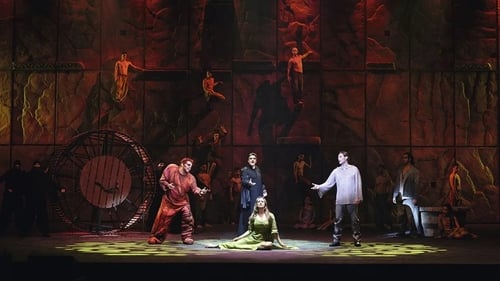
Notre Dame de Paris tells the story of Quasimodo, the hunchbacked bell-ringer of the cathedral of Notre-Dame and of his impossible and tragic love for Esmeralda, a beautiful gypsy. A love condemned by injustice and hypocrisy. Quasimodo forced by his ugliness to look at the world from the top of a tower one day he falls madly in love with Esmeralda who sees dancing and singing on the square in front of the cathedral. But Esmeralda is in love with Febo, the handsome captain of the King's guards. Febo is fiancé of Fiordaliso, a young and rich bourgeois, but the exotic and sensual beauty of the gypsy does not leave indifferent the man who immediately falls in love with her. Even Frollo, the archdeacon of the cathedral, is attracted by the gypsy and spying on the moves of the two lovers in a raptus of jealousy and repressed carnal desire to get rid of the rival stabbing Febo behind.
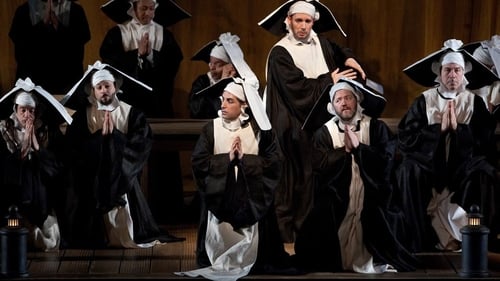
Rossini's "Le Comte Ory" tells the story of a libidinous and cunning nobleman who disguises himself first as a hermit and then as a nun in order to gain access to the virtuous Countess Adele, whose brother is away at the Crusades. The 2011 Met production was directed by Tony Award winner Bartlett Sher, who presented the action as an opera within an opera, updating the action by a few centuries and giving the costume designer, Catherine Zuber, the opportunity to create some particularly extravagant headgear. Juan Diego Florez starred as the title role while Diana Damrau plays Countess Adele, and Joyce DiDonato was in breeches as his pageboy Isolier. Conducted with verve and finesse by Maurizio Benini, the production also features the stylish French baritone Stephane Degout as Ory's bibulous conspirator Raimbaud, charismatic Italian bass Michele Pertusi as the Count's long-suffering Tutor, and, formidable as Adele's housekeeper Ragonde, the Swedish dramatic mezzo Susanne Resmark.

Realizada durante el encierro, "In My Room" nos sumerge en la conmovedora historia de una mujer en el ocaso de su vida, a través de grabaciones de la abuela fallecida del director. Las salas de estar se convierten en escenarios donde se desarrolla la vida. Las ventanas se convierten en portales a la vida de los demás.
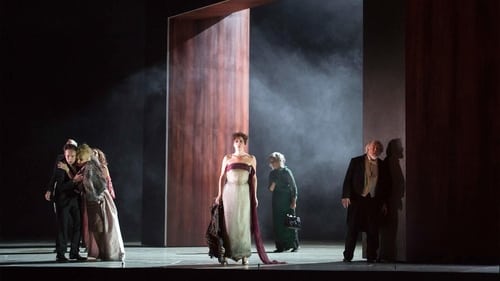
After the acclaimed Met premiere of Thomas Adès's "The Tempest" in 2012, the composer returned with another masterpiece, this time inspired by filmmaker Luis Buñuel's seminal surrealist classic "El Ángel Exterminador", during the 2017–18 season. As the opera opens, a group of elegant socialites gather for a lavish dinner party, but when it is time to leave for the night, no one is able to escape. Soon, their behavior becomes increasingly erratic and savage. The large ensemble cast tackles both the vocal and dramatic demands of Adès's opera with one riveting performance after another. Tom Cairns, who also penned the work's libretto, directs an engrossing and inventive production, using a towering wooden archway to trap the characters onstage. And Adès himself takes the podium to conduct the frenzied score, which features a host of unconventional instruments, including the eerie electronic ondes Martenot.
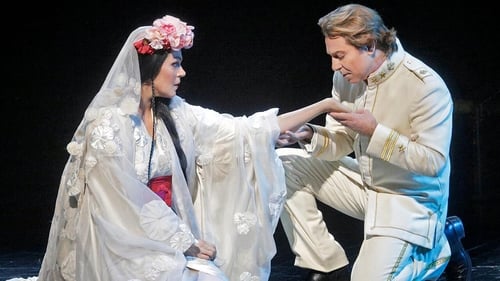
Anthony Minghella’s beautiful, atmospheric production enhances Puccini’s drama of unfortunate, doomed love. Soprano Kristine Opolais brings all of her passionate commitment to her portrayal of Cio-Cio-San, the teenage geisha who gives up everything for Lt. Pinkerton. Roberto Alagna is the American naval officer who does not understand the depth of Cio-Cio-San’s love, and whose subsequent marriage to an American woman precipitates Butterfly’s suicide. Maria Zifchak is Suzuki, Cio-Cio-San’s faithful servant, and Dwayne Croft plays the American consul Sharpless, who tries to avert the tragedy. Karel Mark Chichon conducts.

The Budapest Opera House's diva commits suicide after the owner ruins her career for having rejected his advances but her conductor-husband, believed killed in a fire, plans his revenge on all those he deems responsible for her suicide.

Jonas Kaufmann and Anna Caterina Antonacci bring rare erotic intensity to the drama of Don José and Carmen in this darkly passionate reading of one of the most popular operas. Kaufmann uses his burnished tenor and smouldering good looks to portray the man undone by Carmen's love. As the object of his desire, Antonacci gives a physical and compelling performance.




